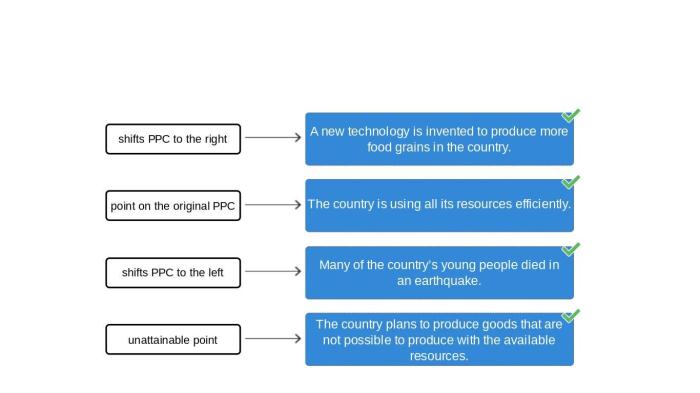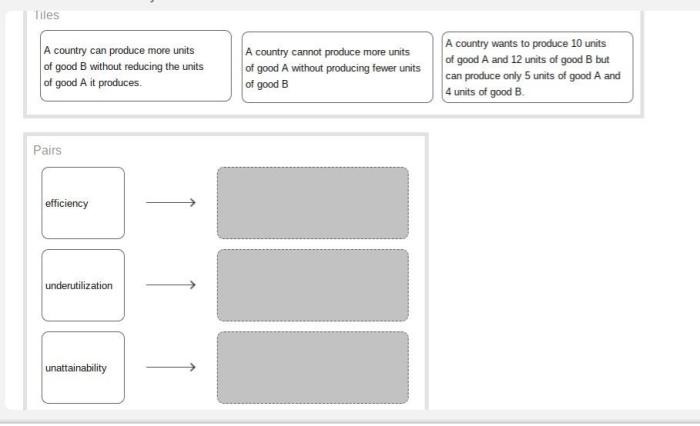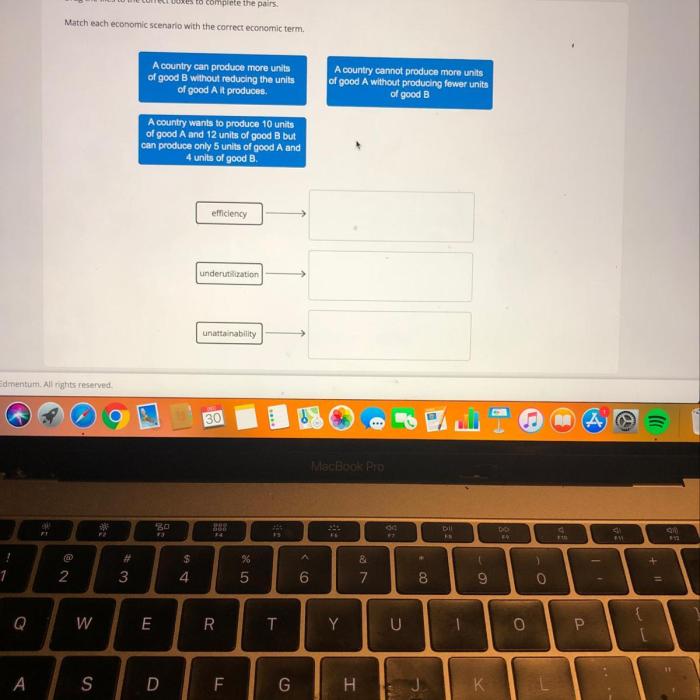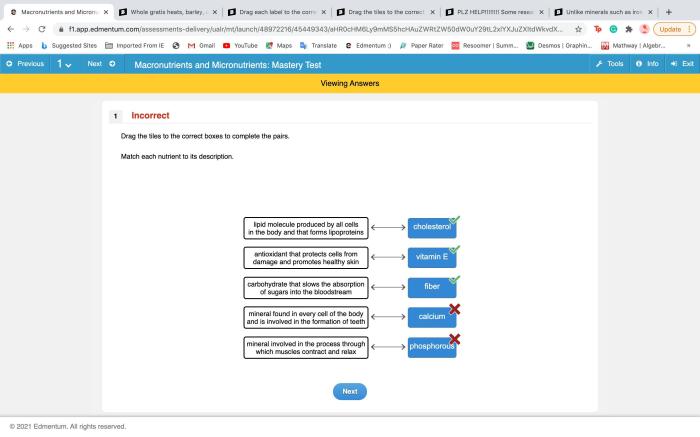Match each economic scenario with the correct economic term – Understanding economic scenarios and their corresponding terms is crucial for comprehending the complexities of the economic landscape. This comprehensive guide provides a clear understanding of various economic concepts and their implications, empowering individuals to navigate the economic landscape with confidence.
Economic Growth

Economic growth refers to the increase in the production of goods and services within an economy over time. It is typically measured by the percentage change in gross domestic product (GDP) or gross national product (GNP).
Factors contributing to economic growth include technological advancements, increased capital investment, labor force growth, and improved education and skills. Economic growth can lead to increased employment, higher incomes, and improved living standards.
Benefits of Economic Growth
- Increased employment and higher wages
- Improved living standards
- Increased tax revenue for governments
- Enhanced economic competitiveness
Challenges of Economic Growth
- Environmental degradation
- Income inequality
- Inflation
- Overcrowding
Economic Recession
An economic recession is a period of significant decline in economic activity, typically characterized by a fall in GDP, high unemployment, and reduced consumer spending.
Causes of economic recessions include financial crises, external shocks (such as oil price shocks), and government policies. Consequences of economic recessions include job losses, business closures, and reduced economic growth.
Measures to Mitigate Economic Recessions
- Expansionary fiscal policy (e.g., tax cuts, increased government spending)
- Expansionary monetary policy (e.g., lowering interest rates, increasing money supply)
- Structural reforms (e.g., labor market reforms, deregulation)
Inflation
Inflation refers to a sustained increase in the general price level of goods and services within an economy over time.
Types of inflation include:
- Demand-pull inflation: Occurs when demand exceeds supply
- Cost-push inflation: Occurs when production costs increase
Impact of Inflation
- Reduced purchasing power
- Increased interest rates
- Reduced economic growth
- Social unrest
Unemployment

Unemployment refers to the state of being without a job and actively seeking work.
Types of unemployment include:
- Frictional unemployment: Occurs during job transitions
- Structural unemployment: Occurs due to changes in technology or the economy
- Cyclical unemployment: Occurs during economic downturns
Causes of Unemployment, Match each economic scenario with the correct economic term
- Economic recession
- Technological advancements
- Structural changes in the economy
Consequences of Unemployment
- Loss of income and reduced living standards
- Reduced tax revenue for governments
- Social problems (e.g., crime, mental health issues)
Economic Inequality

Economic inequality refers to the unequal distribution of income, wealth, and assets among individuals or groups within a society.
Factors contributing to economic inequality include:
- Differences in education and skills
- Discrimination
- Inheritance
Impact of Economic Inequality
- Reduced economic growth
- Social unrest
- Health disparities
Fiscal Policy

Fiscal policy refers to the use of government spending and taxation to influence economic activity.
Tools of fiscal policy include:
- Government spending
- Taxation
Impact of Fiscal Policy
- Stimulates or contracts economic activity
- Redistributes income
- Influences inflation and unemployment
Monetary Policy: Match Each Economic Scenario With The Correct Economic Term
Monetary policy refers to the use of interest rates and money supply to influence economic activity.
Tools of monetary policy include:
- Interest rates
- Money supply
Impact of Monetary Policy
- Influences economic growth
- Controls inflation
- Stabilizes the financial system
Economic Development
Economic development refers to the sustained increase in the living standards of a country or region over time.
Indicators of economic development include:
- GDP per capita
- Human Development Index
- Literacy rate
Factors Contributing to Economic Development
- Investment in education and infrastructure
- Political stability
- Access to technology
Key Questions Answered
What is the significance of matching economic scenarios with the correct economic terms?
Accurately matching economic scenarios with the correct economic terms is essential for precise communication and analysis in the field of economics. It ensures a shared understanding among economists and policymakers, facilitating effective decision-making and policy formulation.